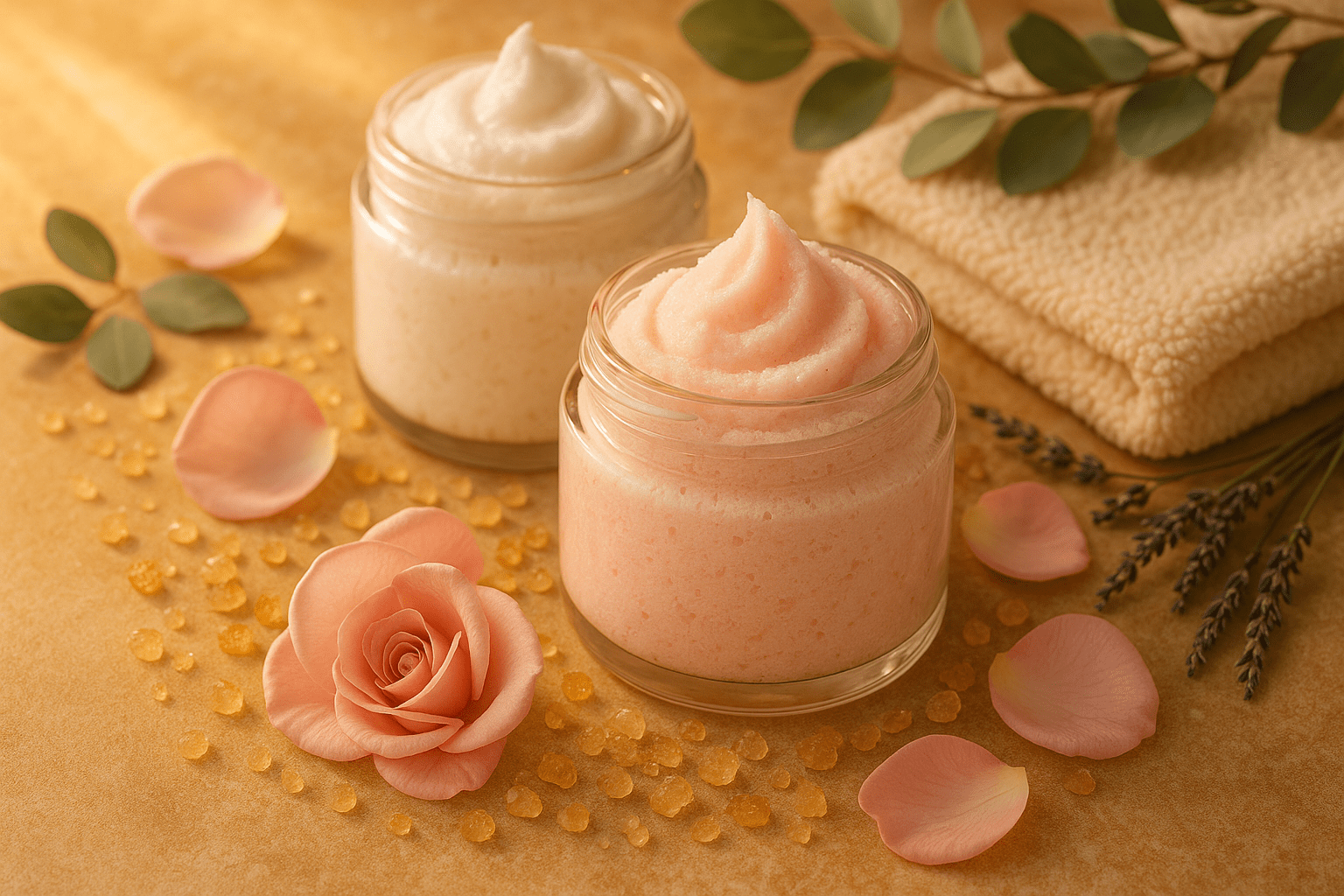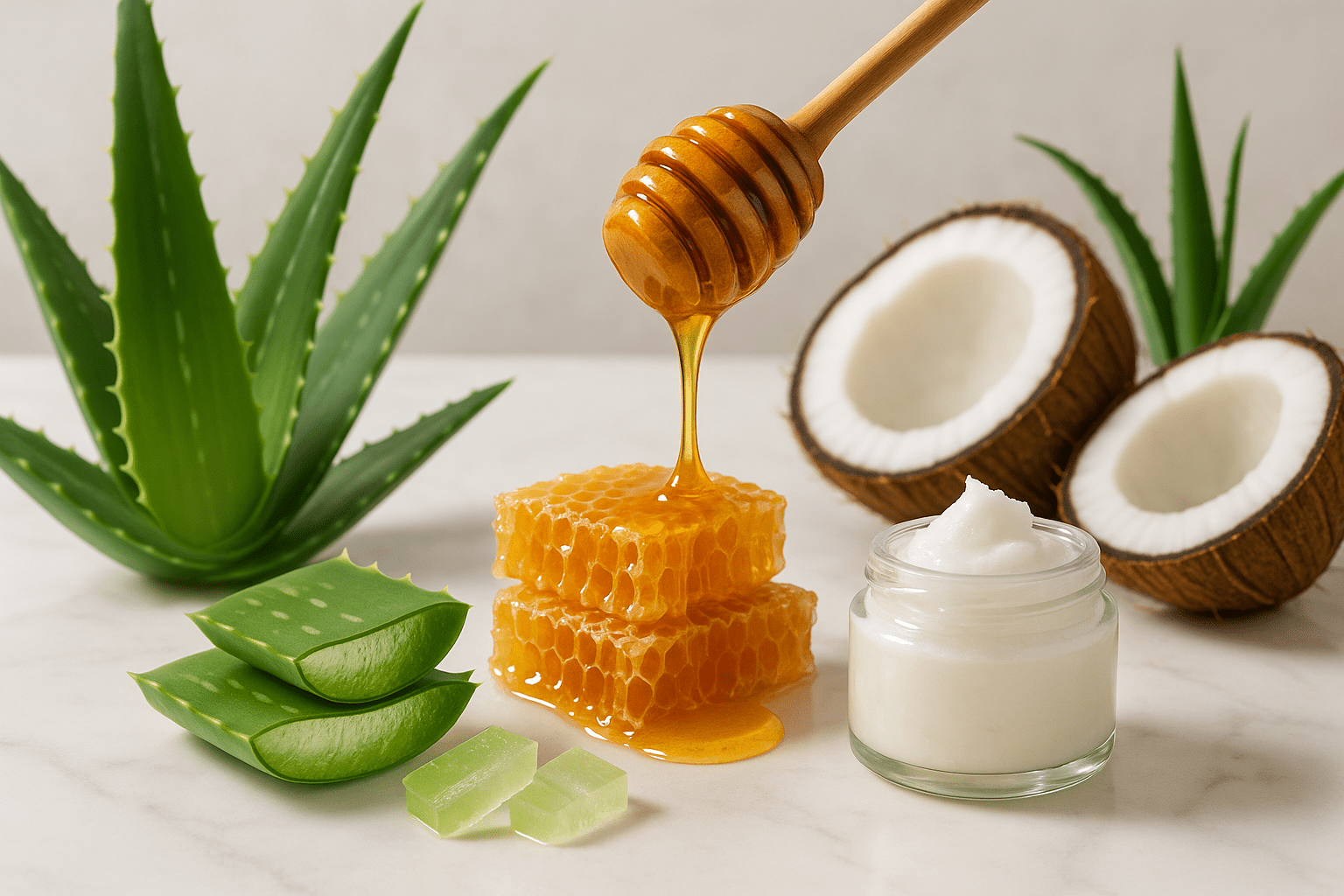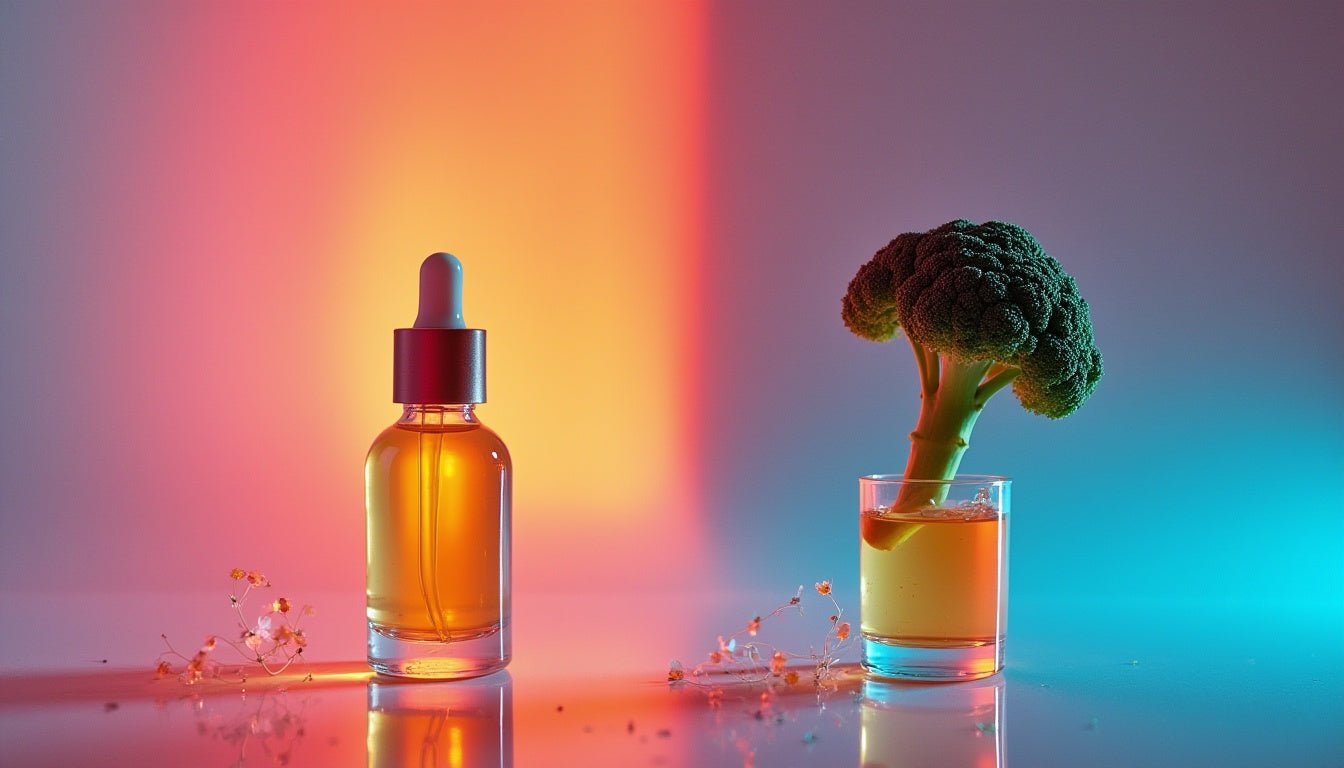
How to Remove Self Tanner: Exfoliation, Sensitive Skin Care & Aftercare Tips
The Ultimate Guide to Removing Self Tanner for Smooth, Radiant Skin
Are you tired of stubborn self tanner stains lingering on your skin? This ultimate guide provides practical tips and tricks for removing self tanner and achieving the even, radiant complexion you desire. Discover effective household exfoliating tools, learn the benefits of chemical exfoliants, and understand how to care for sensitive skin during the process.
Exfoliating Your Way to Radiant Skin
What Household Items Can Help?
Exfoliating your skin is a crucial step in any skincare routine, but did you know that you can find effective exfoliating tools right in your own home? From common kitchen ingredients to everyday household items, there are plenty of options to explore.
Exfoliating at Home: Unlocking the Power of Everyday Items
- Baking soda: This versatile ingredient can be used as a gentle, abrasive scrub to slough off dead skin cells. Mix a small amount with water to create a paste, then gently massage it onto your skin.
- Oatmeal: Finely ground oatmeal makes for a soothing, natural exfoliant. Simply blend some oats and use the powder to lightly scrub your skin.
- Sugar: Granulated sugar works well as a physical exfoliant, helping to remove impurities and reveal a brighter, smoother complexion.
- Coffee grounds: Leftover coffee grounds can be repurposed as an exfoliating scrub. The caffeine and abrasive texture help to stimulate blood flow and remove dead skin.
How to Use Exfoliating Scrubs Effectively?
Incorporating exfoliating scrubs into your skincare routine can make a significant difference in the health and appearance of your skin. However, it's important to use them correctly to avoid any adverse effects.
Mastering the Art of Exfoliation
- Start with a gentle touch: Avoid scrubbing too hard, as this can irritate and damage your skin. Gently massage the scrub in circular motions, focusing on areas prone to dryness or congestion.
- Adjust frequency: The optimal exfoliation frequency varies from person to person, depending on your skin type and sensitivity. As a general rule, aim for 1-2 times per week for normal to dry skin, and 2-3 times per week for oily or acne-prone skin.
- Cleanse first: Before applying the exfoliating scrub, make sure your skin is thoroughly cleansed to remove any surface-level impurities. This will allow the scrub to penetrate more effectively.
- Moisturize after: After rinsing off the scrub, follow up with a nourishing moisturizer to hydrate and soothe your skin, locking in the benefits of exfoliation.
When Should You Use a Chemical Remover?
While physical exfoliants like scrubs can be highly effective, chemical exfoliants can also play a crucial role in your skincare routine. Understanding when to use a chemical remover can help you achieve your desired skin goals.
Unveiling the Power of Chemical Exfoliation
- Target specific skin concerns: Chemical removers, such as alpha-hydroxy acids (AHAs) and beta-hydroxy acids (BHAs), can address a variety of skin issues, from acne and hyperpigmentation to fine lines and wrinkles.
- Deeper exfoliation: Unlike physical scrubs, chemical removers work on a deeper level, dissolving the bonds between dead skin cells and allowing them to slough off more effectively.
- Sensitive skin-friendly: For those with sensitive skin, chemical exfoliants can be a gentler alternative to physical scrubs, as they don't rely on abrasive particles.
- Prepare for other treatments: Incorporating a chemical remover into your routine can help prepare your skin for other treatments, such as serums or masks, by improving absorption and efficacy.
Exfoliating your skin is a transformative step in any skincare routine, and with the right techniques and tools, you can achieve a radiant, youthful glow. By exploring the power of household items and understanding the benefits of both physical and chemical exfoliants, you can unlock the key to healthier, more vibrant skin.
The Ultimate Guide to Caring for Sensitive Skin
What Should You Avoid During the Process?
When it comes to caring for sensitive skin, it's important to be mindful of the products and practices that can do more harm than good. Here are some things to steer clear of:
Harsh Cleansers and Exfoliants
- Avoid products that contain harsh chemicals, such as sulfates, alcohol, and fragrances, as they can strip the skin of its natural oils and lead to irritation.
- Opt for gentle, non-foaming cleansers that are formulated specifically for sensitive skin.
- Limit exfoliation to once or twice a week, and choose a physical scrub with soft, rounded beads rather than a chemical exfoliant.
Hot Water and Aggressive Scrubbing
- Washing your face with hot water can disrupt the skin's protective barrier, leading to dryness and inflammation.
- Instead, use lukewarm water and gently pat your skin dry with a soft towel.
- Avoid vigorous scrubbing, as this can cause further irritation and damage the skin.
Aggressive Skincare Routines
- Introducing too many new products at once can overwhelm sensitive skin and cause adverse reactions.
- Start with a simple routine of a gentle cleanser, a hydrating moisturizer, and a broad-spectrum sunscreen.
- Gradually introduce other products, such as serums or spot treatments, one at a time to see how your skin reacts.
How to Protect Sensitive Skin?
Caring for sensitive skin requires a gentle, consistent approach. Here are some strategies to help protect and nourish your skin:
Opt for Soothing Ingredients
- Look for skincare products that contain calming and nourishing ingredients, such as aloe vera, chamomile, and ceramides.
- These ingredients can help to soothe inflammation, restore the skin's barrier, and prevent further irritation.
- Avoid products with added fragrances, alcohol, and harsh preservatives, as these can trigger sensitivity.
Incorporate Gentle Exfoliation
- Exfoliation is important for removing dead skin cells and promoting a healthy, radiant complexion.
- However, for sensitive skin, it's best to use a gentle physical exfoliant, such as a soft, muslin cloth or a konjac sponge, rather than a harsh scrub.
- Exfoliate no more than once or twice a week, and follow up with a hydrating moisturizer to soothe the skin.
Protect from Environmental Stressors
- Exposure to harsh environmental factors, such as UV radiation, pollution, and cold weather, can further aggravate sensitive skin.
- Wear a broad-spectrum sunscreen with a high SPF to shield your skin from the sun's damaging rays.
- Consider using a moisturizer or serum with antioxidants to help neutralize free radicals and reduce inflammation.
Are There Risks with Certain Products?
When it comes to sensitive skin, certain skincare products can pose a greater risk of irritation or adverse reactions. It's essential to be aware of these potential risks:
Fragranced Products
- Fragrances, whether synthetic or natural, are a common trigger for sensitive skin.
- They can cause redness, itching, and even contact dermatitis in some individuals.
- Opt for fragrance-free or unscented products to minimize the risk of irritation.
Alcohol-Based Toners and Astringents
- Toners and astringents that contain alcohol can be drying and disruptive to the skin's natural barrier.
- This can lead to increased sensitivity, redness, and even breakouts.
- If you do use a toner, choose one that is alcohol-free and designed for sensitive skin.
Retinoids and Acids
- While these ingredients can be beneficial for addressing certain skin concerns, they can also be quite potent and irritating for sensitive skin.
- Start with low concentrations and gradually work your way up, or consider using a gentler, buffered formulation.
- It's always a good idea to patch test any new product before incorporating it into your routine.
By being mindful of the products and practices that can harm sensitive skin, and incorporating gentle, nourishing solutions, you can achieve a healthy, radiant complexion that looks and feels its best. Remember, the key to caring for sensitive skin is patience, consistency, and a personalized approach that addresses your unique needs.
The Ultimate Guide to Maintaining Radiant Skin Post-Treatment
What Are the Best Aftercare Products?
After undergoing a skin treatment, it's crucial to incorporate the right aftercare products into your routine to ensure optimal healing and long-lasting results. From soothing serums to hydrating moisturizers, the right combination of products can make all the difference.
The Key to Effective Aftercare
- Choosing products that are specifically formulated for post-treatment skin is essential. These formulas are designed to address the unique needs of skin that has undergone a rejuvenating procedure.
- Look for ingredients like aloe vera, vitamin E, and hyaluronic acid, which can help calm inflammation, reduce redness, and deeply hydrate the skin.
- Avoid harsh, drying ingredients like alcohol, fragrances, and exfoliants, as these can further irritate and disrupt the skin's delicate barrier.
How to Rehydrate Depleted Skin?
When skin has been through a treatment, it's often left feeling tight, dry, and dehydrated. Replenishing the skin's moisture levels is crucial to facilitate the healing process and maintain a healthy, radiant complexion.
Restoring Skin's Hydration Levels
- Incorporate a hydrating serum or essence into your routine, focusing on ingredients like hyaluronic acid, glycerin, and ceramides, which can draw moisture into the skin and lock it in.
- Apply a rich, creamy moisturizer to seal in the hydration and provide a protective barrier for the skin.
- Consider using a facial oil or facial balm as the final step in your routine, as these emollient formulas can further nourish and replenish the skin.
- Don't forget to keep your skin well-hydrated from the inside out by drinking plenty of water and incorporating hydrating foods into your diet.
Is It Necessary to Avoid Sun Exposure?
After undergoing a skin treatment, it's crucial to be extra cautious when it comes to sun exposure. The skin is often more sensitive and vulnerable, making it essential to take the necessary precautions to prevent further damage and ensure optimal healing.
Protecting Your Skin from the Sun
- Avoid direct sun exposure as much as possible, and opt for shaded areas or cover-ups when going outdoors.
- Use a broad-spectrum sunscreen with an SPF of 30 or higher, and reapply it every two hours, or more frequently if sweating or swimming.
- Consider wearing a wide-brimmed hat and sunglasses to provide additional protection for your face and eyes.
- Avoid tanning beds and other artificial sources of UV radiation, as these can further stress the skin and impede the healing process.
- If you must be in the sun, try to limit your exposure to the peak hours between 10 am and 4 pm, when the sun's rays are the strongest.
By incorporating the right aftercare products, maintaining optimal hydration, and protecting your skin from the sun, you can ensure that your skin heals and thrives after any rejuvenating treatment. Remember, your skin's recovery and long-term health are of the utmost importance, so be patient, consistent, and attentive to its needs.
Unveil the Secrets of Radiant, Glowing Skin with Our Luxurious Body Scrubs 🌟
Organic Body Scrub with Dead Sea Salt & Shea Butter 🧂
Unlock the power of pure, natural ingredients with our Organic Body Scrub. Enriched with the nourishing benefits of Dead Sea Salt and Shea Butter, this exfoliating scrub transforms your skin, leaving it deeply hydrated and glowing.
Discover the ultimate in skin pampering with our Organic Body Scrub:
- Formulated with premium-quality Dead Sea Salt, known for its high mineral content and powerful detoxifying properties, this scrub gently yet effectively exfoliates to reveal a smooth, radiant complexion.
- Infused with creamy Shea Butter, a natural emollient that deeply moisturizes and conditions the skin, leaving it soft, supple, and nourished.
- Packed with essential vitamins, minerals, and antioxidants that work together to revitalize and rejuvenate your skin, promoting a youthful, healthy glow.
- Suitable for daily use, this scrub can be incorporated into your natural skin care routine for long-lasting, transformative results.
- Gentle enough for the face, though the Dead Sea Salt may cause a mild tingling sensation.
Organic Pumpkin Shea Sugar Body Scrub 🎃
Get ready to fall in love with your skin! Our Organic Pumpkin Shea Sugar Body Scrub is the ultimate indulgence for achieving a radiant, glowing complexion.
Embrace the power of natural ingredients and experience the benefits of this luxurious body scrub:
- Crafted with a blend of brown sugar, shea butter, and pumpkin puree, this exfoliating scrub gently removes dull, dry skin to reveal a smooth, soft, and luminous complexion.
- Infused with skin-nourishing Almond oil, this scrub deeply hydrates and conditions the skin, helping to restore its natural glow and balance.
- The delightful pumpkin spice scent will transport you to the cozy comforts of autumn, while the exfoliating properties leave your skin feeling refreshed and revitalized.
- Suitable for use on both the face and body, this multi-purpose scrub is a must-have for achieving a healthy, luminous glow.
- Be mindful that the salt in this scrub may cause a mild tingling sensation, especially on the delicate facial skin.
Organic Whipped Sugar Fondant Exfoliating Body Scrub - Crepey Skin Treatment 🍯
Prepare to be amazed by the transformative power of our Organic Whipped Sugar Fondant Exfoliating Body Scrub! This luxurious scrub is the ultimate solution for addressing crepey skin and revealing a radiant, youthful glow.
Indulge in the nourishing benefits of this exfoliating body scrub:
- Infused with a blend of Coconut Oil, Sweet Almond Oil, and Vitamin E, this scrub deeply hydrates and nourishes the skin, helping to improve elasticity and reduce the appearance of crepey skin.
- Enriched with glycolic acid, this scrub gently exfoliates, removing dead skin cells and unclogging pores for a smooth, even complexion.
- The whipped, fondant-like texture of this scrub creates a luxurious, indulgent experience, leaving your skin feeling silky-soft and thoroughly refreshed.
- Boasting a delightful scent that can be customized with a range of essential oil blends, this scrub will transport you to a spa-like oasis in the comfort of your own home.
- Suitable for use on both the face and body, this multi-purpose scrub is a must-have for achieving a radiant, youthful glow.
Q&A
What household items can I use to exfoliate my skin?
You can use baking soda, oatmeal, sugar, and coffee grounds as effective exfoliating agents found in your home. Each ingredient has unique properties to help remove dead skin cells.
How often should I exfoliate my skin?
For normal to dry skin, aim for exfoliation 1-2 times per week, while those with oily or acne-prone skin can exfoliate 2-3 times weekly to maintain skin health.
What should I avoid while caring for sensitive skin?
Avoid harsh cleansers, aggressive scrubbing, and introducing too many new products at once. Stick to gentle, hydrating formulations.
How can I protect my sensitive skin?
Use soothing ingredients such as aloe vera and chamomile, limit exposure to environmental stressors, and apply broad-spectrum sunscreen daily.
What are the best aftercare products after skin treatment?
Look for post-treatment products with calming ingredients like aloe vera, vitamin E, and hyaluronic acid to support healing and hydration.
In summary, effectively removing self tanner stains is achievable with the right techniques and products. By using household exfoliants, understanding the importance of gentle care for sensitive skin, and staying vigilant about post-treatment skincare, you can achieve and maintain a flawless complexion. Follow these tips and say goodbye to unwanted stains!






